A meeting agenda template is a handy tool which includes a list of topics which are going to be discussed, debated or analyzed during a meeting. The primary aim, held within the meeting agenda, is to present a comprehensible picture of actions which could be done in a meeting. This can consist of speaker name, job title as well as time allocation for each topic. A meeting agenda template ensures meeting proceedings are going as per planning and can avoid wastage of precious time by all participants. Every year, management spends a massive amount on conducting meetings, whereas it also costs time as well as resources. Therefore, it would certainly be a wise decision to put things on paper. As per professional experience, meetings conducted with agendas are likely to achieve all its objectives than without agendas.
Meetings are Necessary:
The management can resolve their internal issues by discussing them in a meeting and, therefore, it is necessary to have a meeting. But, conducting meetings could also be the biggest time-consuming task, if not managed properly. Businesses and executives need to meet with stakeholders, investors and with auditors, and they cannot hide themselves from it. Consequently, the need for a professional meeting agenda format arises even largely. It is also part of human resource manual and helps management in clearly focusing on key points which should be addressed while meeting. You can attain your targeted goals during a meeting if you have a meeting agenda. That is the reason it is now becoming an imperative persona of every meeting.
Meetings Have Different Segments:
Like any other business activity, meetings can be categorized into the following segments:
Formal and informal: The nature of a meeting can be considered as formal or informal based on its nature.
Insightful: The conclusive purpose of every meeting is to be informative.
Topics: A detailed yet comprehensive conversation of topics with the aim of resolving them quickly.
Recommendations: The conclusion part where recommendations are established based on discussion.
Taking Minutes: A record of every moment of the meeting and the agenda of next meeting for user guidance.
Meetings Can be Conducted Effectively
The key of success of any meeting lies in management. A better controlled meeting can produce maximum effectiveness, and yet it is inevitable. You can conduct a meeting effectively by reading or understanding the following tips:
Determine Importance of Meeting:
Avoid conducting unnecessary meetings. Therefore, your first step towards conducting an effective meeting should be analyzing the importance of a meeting. Get answers to some questions, including what will happen if this meeting is not conducted. If your answer is nothing, then calling this meeting will not be more than an expense of time.
Make Set of Goals:
Prepare an outline of what you want to achieve at the end of the meeting to determine its effectiveness. Write out meeting goals that are complete, clear and specific so that someone else can also use them to conduct a meeting. Make sure that your goals for the meeting will be achievable with people available, resources and time. Having specific goals will help everyone in meetings make efficient progress towards relevant results.
Write a Meeting Agenda:
The agenda is one of the essentials for running an effective meeting. Many people try to save time by neglecting meeting agendas, but in fact they spoil all the time spent in meetings. If you don’t have a meeting agenda, you are supposed to be on a journey without any map. You need to consider the importance of the meeting agenda and meeting agenda format to design a perfect meeting agenda. You can use free agenda template available on the internet by making necessary changes in a template. Moreover, you can search for an agenda format template and also determine a professional agenda format. This will help you a lot in conducting an effective meeting.
Inform Others:
Once you have created a meeting agenda, send it to concerned people at least a day before the meeting. It will help other people to prepare their minds to participate in a meeting for a specific and productive discussion. Having no agenda, these people will waste their time by preparing their questions for meeting during meeting.
Keep Focusing on Issue:
Don’t let people waste time on unnecessary discussions. Some people try to make the meeting meaningless by telling fake stories, jokes and unrelated issues. They just waste time, mislead others and distract the attention of all members. Having an organized meeting agenda will keep all people focused on the main issue. Ask such people to save fun for other social occasions where their contribution will be appreciated.
Call Selective People:
Be strictly selective in inviting people to meet. Make sure to invite people who can contribute for achieving meeting goals. Crowds of observers or non-concerned people will spoil the progress of a meeting.
Follow Time Budget:
Make sure to schedule all meeting activities according to time. Allocate suitable time for every issue according to its urgency and importance.
Templates for Meeting Agenda
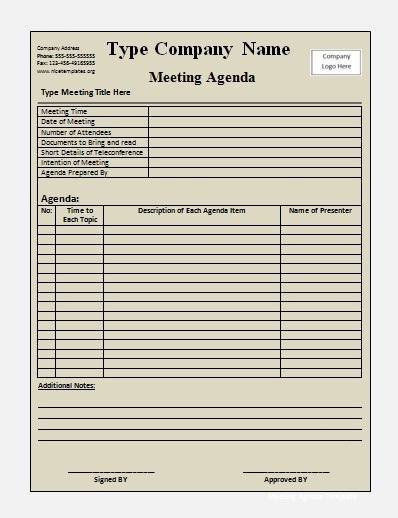
Source: www.wordstemplates.org
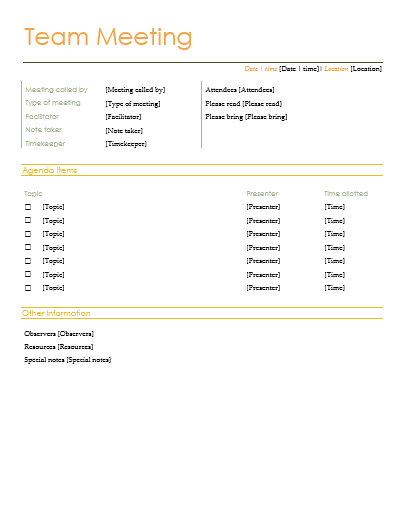
Source: templates.office.com
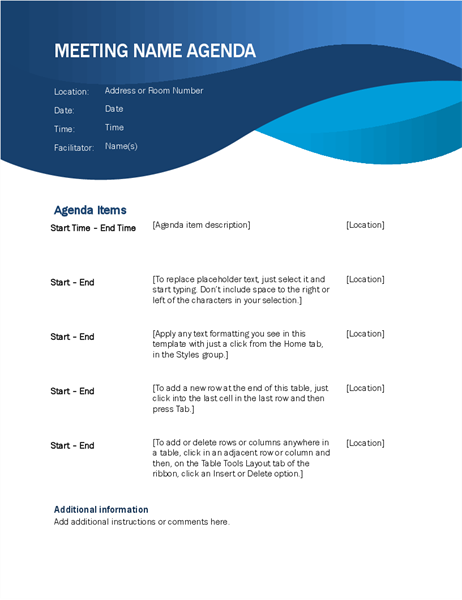
Source: templates.office.com
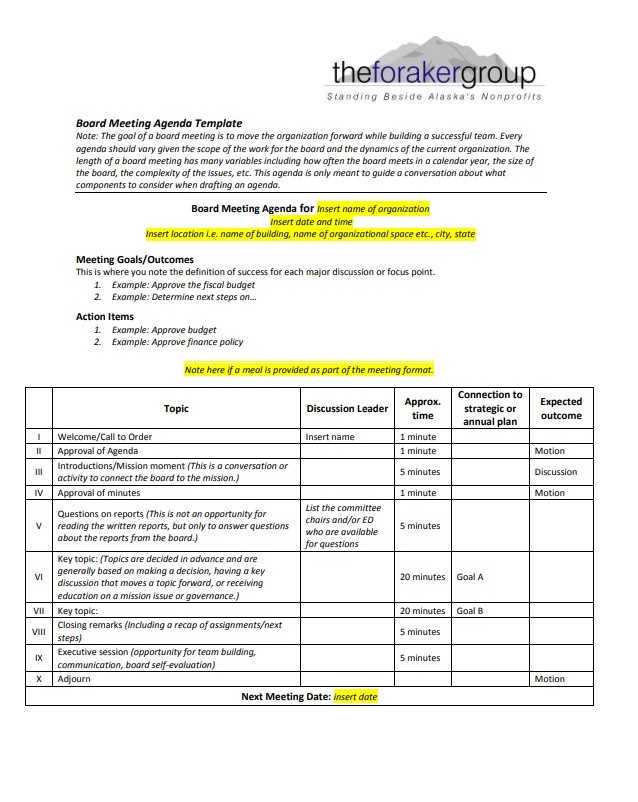
Source: www.forakergroup.org
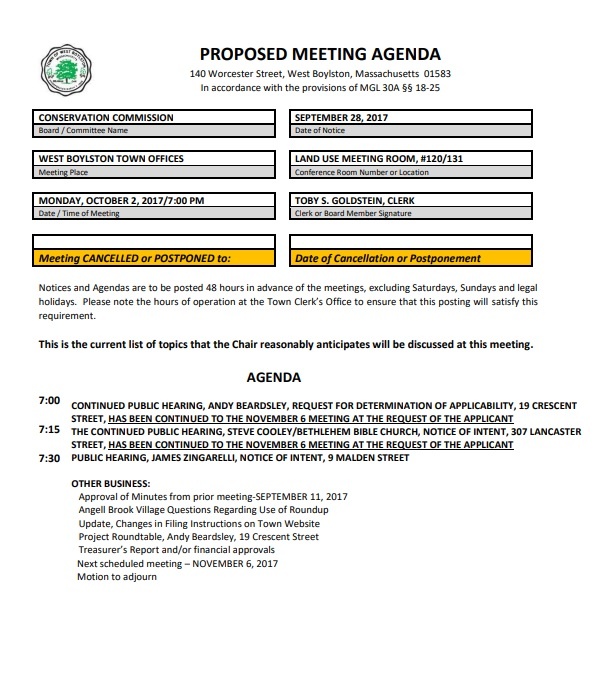
Source: www.westboylston-ma.gov
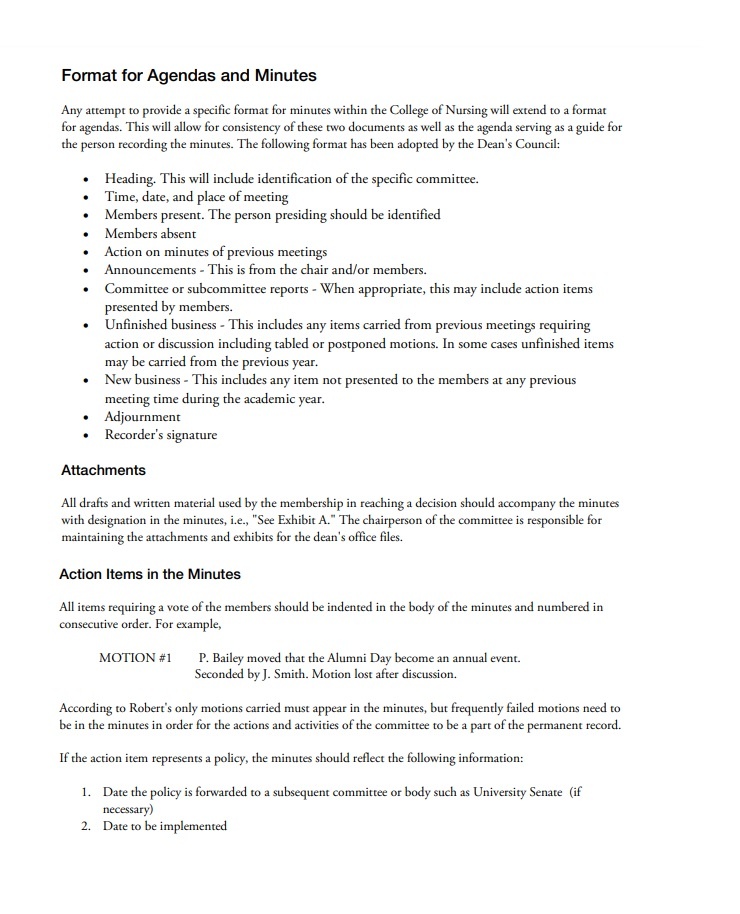
Source: www.uky.edu
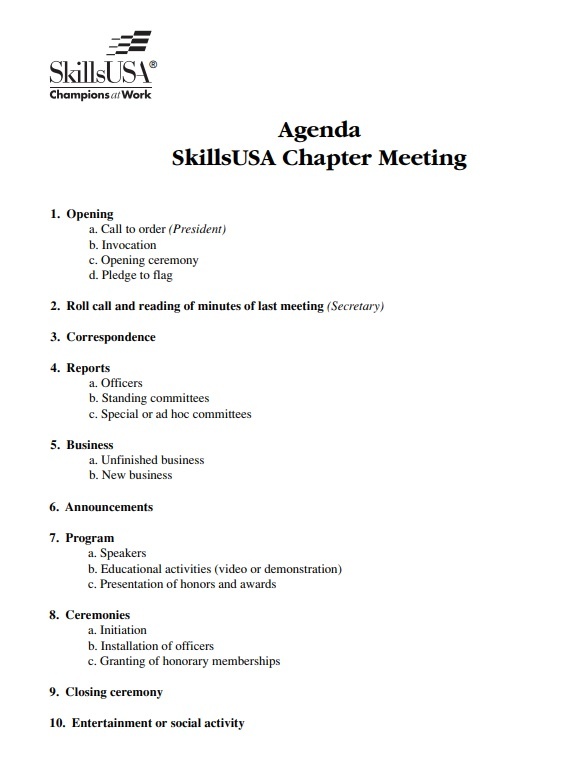
Source: www.skillsusa.org
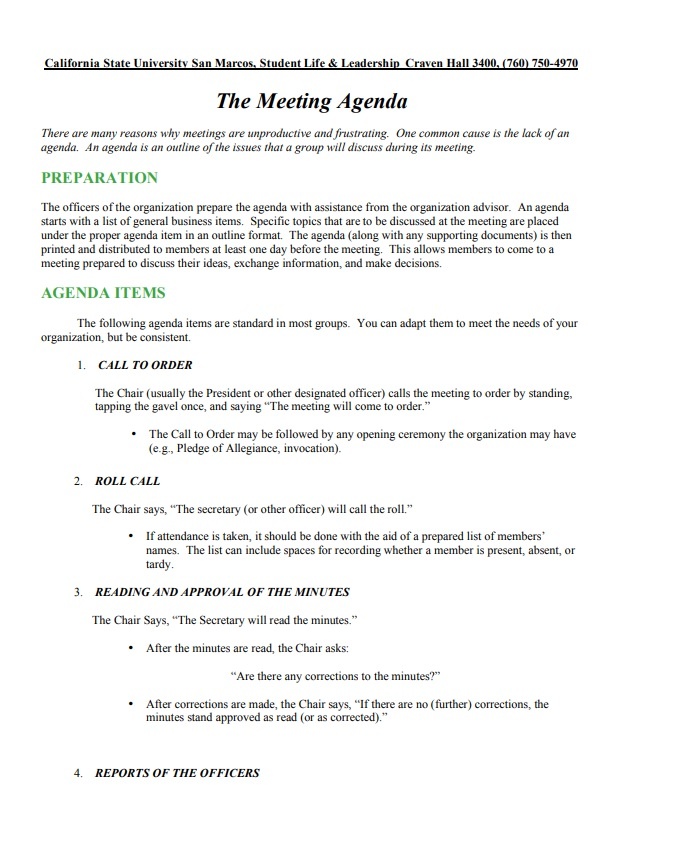
Source: csusm.edu
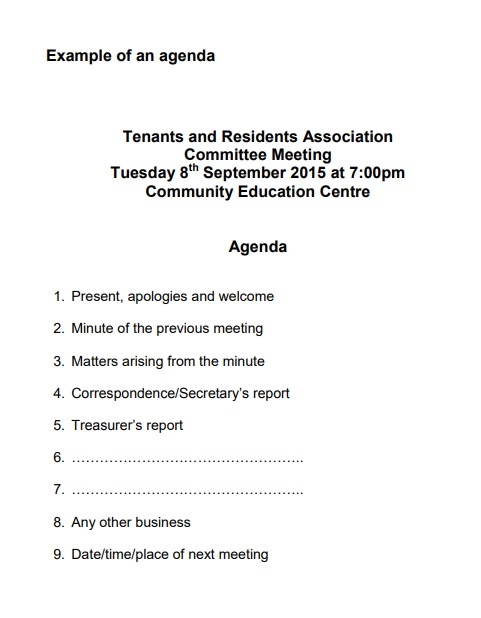
Source: www.west-dunbarton.gov.uk
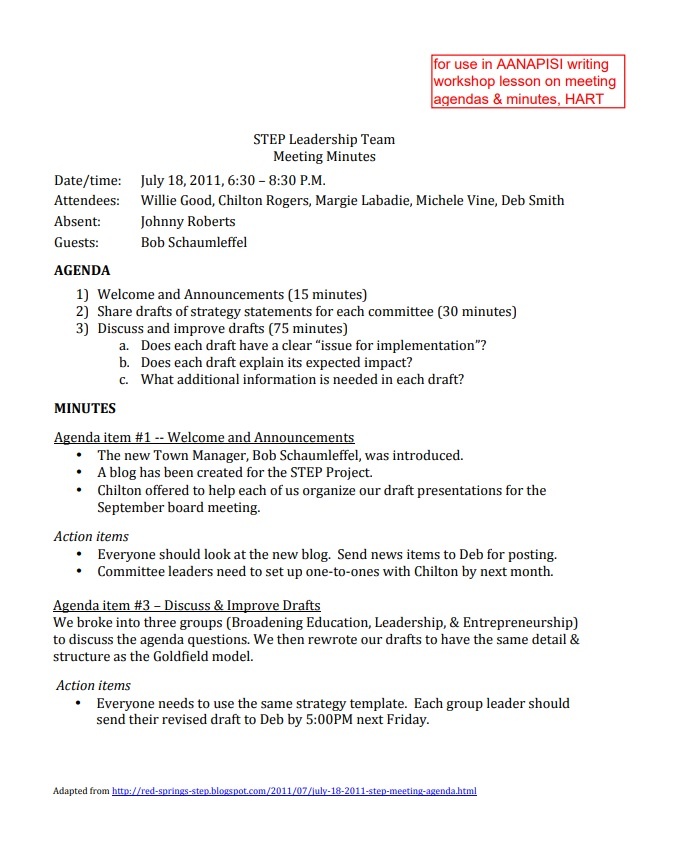
Source: www.sjsu.edu
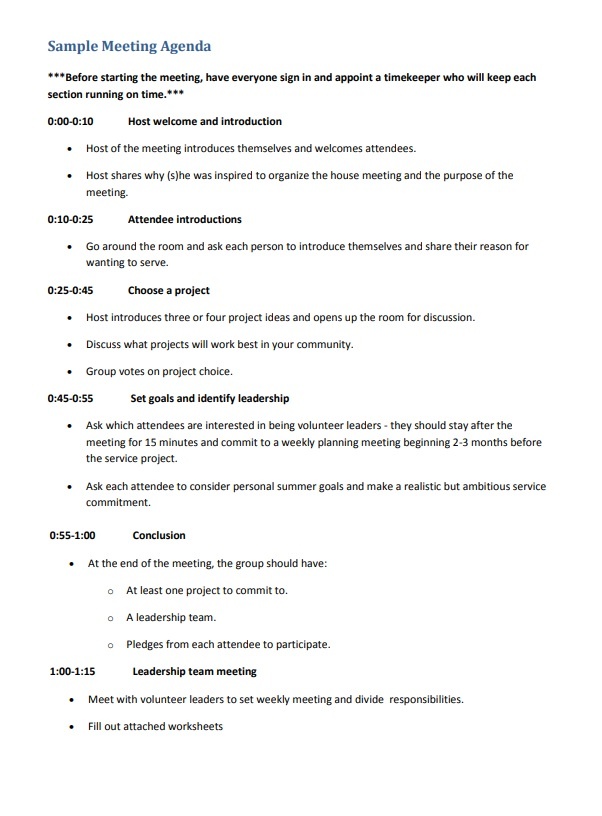
Source: s3-us-gov-west-1.amazonaws.com
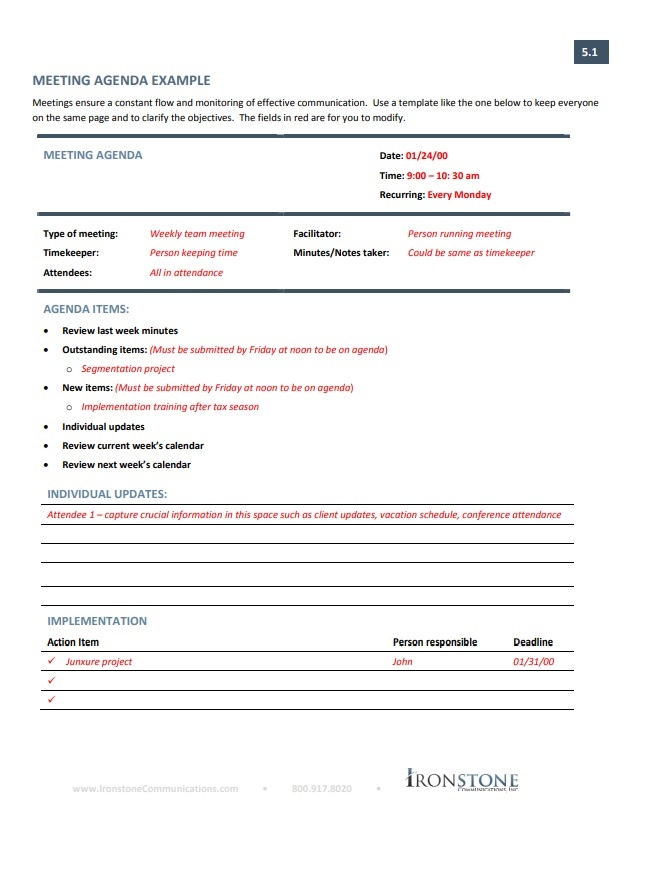
Source: ironstonehq.com
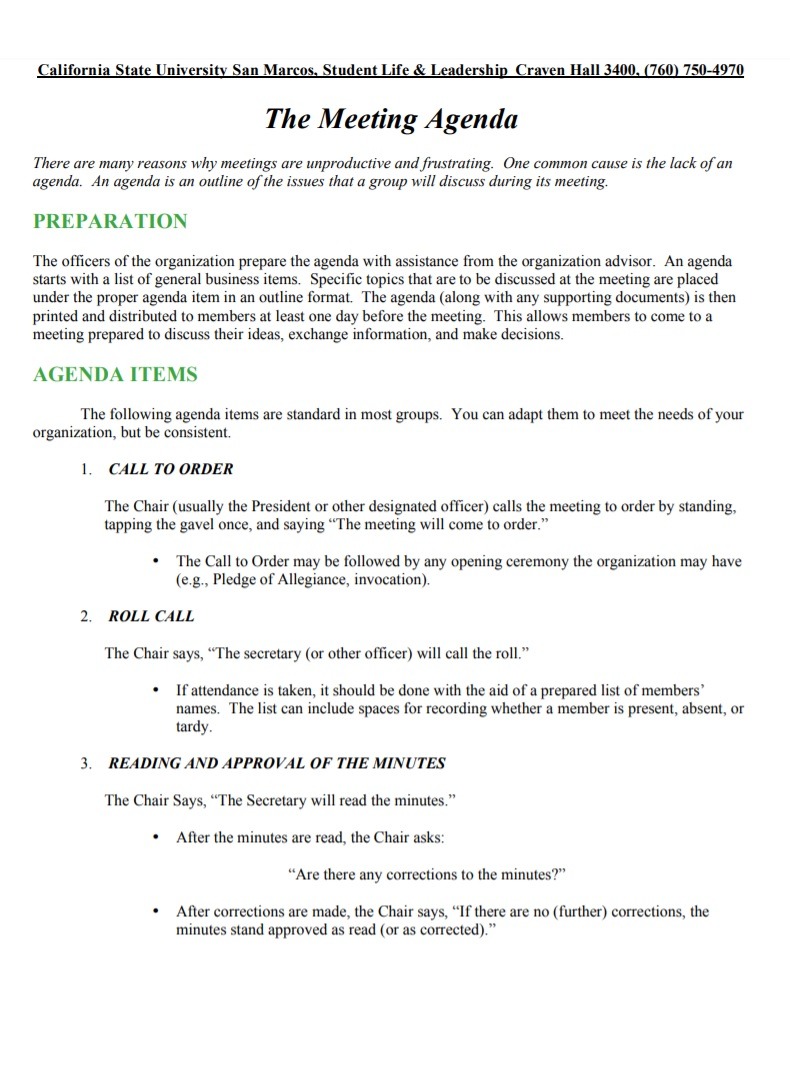
Source: www.csusm.edu
